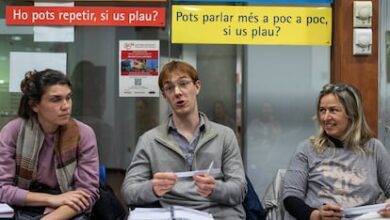
A new round of debate is heating up in Spain over migration policy and national identity. Socialists from the PSOE, through their research platform Avanza, emphasize that the country has always been a crossroads of cultures, and that this diversity shapes its unique character. In contrast, representatives of Vox and their allies from the Partido Popular (PP) insist on tightening border controls and link migration to rising crime and security threats.
The Avanza report notes that nearly 10 million migrants live in Spain, many of whom do not have citizenship. Special attention is given to children of migrants who were born and raised in the country, but who often face alienation because of being labeled as a “second” or “third generation.” According to the report’s authors, such terminology only deepens the feeling of isolation and hinders full integration.
Political battles and cultural challenges
In recent months, the standoff between parties has intensified. The Socialists backed an initiative to legalize hundreds of thousands of foreigners already working and contributing to the economy. At the same time, conservatives refused to support the measure, despite calls from religious organizations. Against this backdrop, Vox continues to push for the deportation of millions of migrants and their descendants, raising concerns among human rights advocates and experts.
The situation escalated after incidents in Murcia, where radical groups attacked migrants. These events demonstrated how dangerous stereotypes can be and how easily they can lead to violence. The report emphasizes that you cannot demand people become ‘fully fledged’ citizens while constantly reminding them they are ‘outsiders.’
Freedom of religion and minority rights
Religious freedom has also become a major sticking point. In the region of Murcia, local authorities, backed by Vox and PP, restricted the celebration of Muslim holidays in municipal buildings. Avanza insists that respect for religious traditions and access to infrastructure, including cemeteries, is an essential part of equality. The shortage of Muslim cemeteries in Spain remains a pressing issue, which experts say is a form of discrimination that persists even after death.
Migration myths and the role of disinformation
Despite widespread misconceptions, migrants are not displacing locals from the labor market or causing spikes in crime. However, far-right parties continue to mobilize supporters by spreading these myths and pushing false information on social media. The report notes that combating disinformation is one of the key challenges for maintaining social stability.
Demographic data show the growing influence of migrants’ descendants: among children under the age of three, they account for more than 30%. This suggests that Spain will become even more multicultural in the future. The question is whether society will see this as an advantage rather than a threat.












